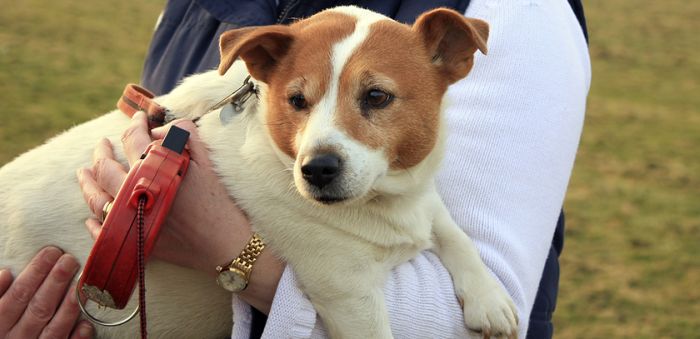The Weight of Love: Helping Your Dog Live a Longer, Healthier Life
Why Weight Matters for Dogs
Obesity isn’t just about extra weight—it’s a serious health issue that can lead to inflammation and negatively impact the heart, joints, kidneys, skin, and even increase the risk of cancer. The good news? Studies have shown that maintaining a healthy weight can have the opposite effect. Keeping your dog lean, fit, and active not only improves their quality of life but can also extend it.
For example, a study by Nestlé Purina Petcare found that Labrador Retrievers fed 25% fewer calories than their free-fed littermates lived a full two years longer and developed chronic conditions like arthritis much later in life. A more recent study from the University of Liverpool and Mars Petcare’s Waltham Centre for Pet Nutrition supported these findings, showing that healthy-weight dogs outlived their overweight peers by as much as two and a half years.
In the Dog Aging Project, tens of thousands of dogs were observed in their home environments, and researchers found that those fed less frequently experienced fewer diseases and showed fewer signs of cognitive decline. Similar positive outcomes have been observed across many other species, reinforcing the broad benefits of maintaining a healthy weight.
For dog owners, this translates to a pet that stays healthier, sharper, and more active for longer—making everyday moments together that much better.
How to Know if Your Dog is Overweight
You might wonder how you can tell if your dog is carrying extra weight that might affect their health – sometimes it’s not apparent to even the most caring owners. Thankfully, there are several different ways you can go about discerning this.
First and foremost, if you’re worried about your dog’s weight, seek guidance from your veterinary care team. A vet has the knowledge and experience to help you assess your dog’s weight.
There are also some simple at-home examinations you can do to check on your dog’s health.
1. View your dog from the side and above. The underside area behind the ribcage should slope upward toward the hind legs. A belly that lacks a tuck or a sagging belly suggests excess weight. There should be a noticeable waist just in front of the hind legs. If the dog’s body silhouette appears straight or rounded instead of narrowing slightly, the dog could be carrying extra weight.
2. Pay attention to any trouble they may have with walking, rising from lying down, or moving.
3. Perform a check for extra fat using our visual step-by-step guide you can access right here: DIY Doggie Fat-Check
Your Dog Has Some Extra Pounds? Here’s What to Do:
If your dog is carrying extra weight, there are some simple yet effective steps to take:
- Nutrition: Feed your dog a balanced, portion-controlled diet tailored to their needs and limit the number of treats you give them.
- Exercise: Incorporate regular walks, playtime, and activities to keep them active – and you too!
- Routine Checkups: Work with your veterinarian to monitor your dog’s progress and adjust their care as needed.
These lifestyle changes may take time, just like with your own health, but the benefits to your dog’s wellness and vitality are well worth the effort.
By making your dog’s weight a priority, you’re giving them the gift of a longer, happier life – because every year together is a gift.
Join the Fight Against Canine Obesity
Maintaining a healthy weight for your dog is one of the best gifts you can give them. And by supporting organizations like the CHF, you’re contributing to groundbreaking research that helps dogs everywhere live longer, healthier, more vibrant lives.
Want to learn more or lend your support? Visit https://www.akcchf.org/ to discover how you can make a difference.

🐾 Paws & Reflect
What’s the problem?
Nearly 60% of U.S. dogs are overweight, leading to serious health risks. Many owners feel a strong connection to their dogs when they care for them, often leading to feeding the dog too much or giving them too many treats out of love.
What do dog owners need to know about this problem?
Obesity in dogs can lead to chronic conditions and shorten their lifespan.
What can an owner do to help their dog?
Pay attention and know how to tell if your dog is carrying too much weight. Prioritize a proper diet for your particular dog's needs, limit treats, provide daily exercise, and maintain regular veterinary care.
How can you support CHF research?
You can make a direct impact by donating to CHF. Your support fuels critical research that leads to better diagnostics, treatments, and hope for dogs suffering from Obesity and other serious diseases. Every gift brings us one step closer to saving lives. Join us in advancing canine health—donate today and be part of the solution.
Related Articles
Help Future Generations of Dogs
Participate in canine health research by providing samples or by enrolling in a clinical trial. Samples are needed from healthy dogs and dogs affected by specific diseases.



